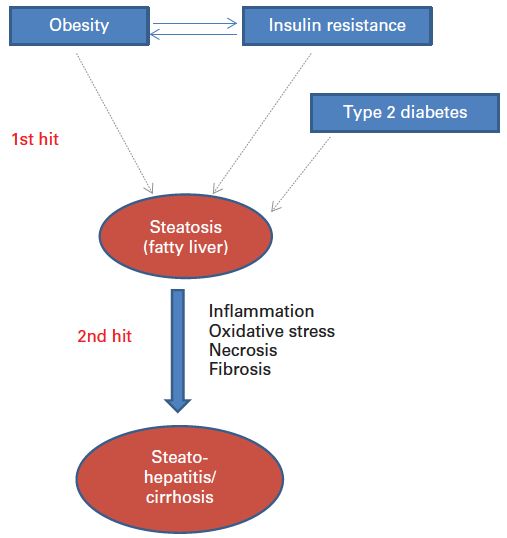Two-hit model of non-alcoholic fatty liver disease (credit: ILSI Europe)
In an open-access paper in the British Journal of Nutrition, a coalition of 17 experts explain how elevated unresolved chronic inflammation is involved a range of chronic diseases, and how nutrition influences inflammatory processes and helps reduce chronic risk of diseases.
According to the authors, “the nutrition status of the individual with for example a deficiency or excess of certain micronutrients (e.g. folate, vitamin B12, vitamin B6, vitamin 1, vitamin E, zinc) may lead to an ineffective or excessive inflammatory response.
“Studies have showed that high consumption of fat and glucose may induce post-prandial inflammation (manifesting itself after the consumption of a meal), which may have consequences for the development of diabetes and cardiovascular diseases. The Western-style diet, rich in fat and simple sugars but often poor in specific micronutrients, is linked to the increased prevalence of diseases with strong immunogical and autoimmune components, including allergies, food allergies, atopic dermatitis and obesity.”
